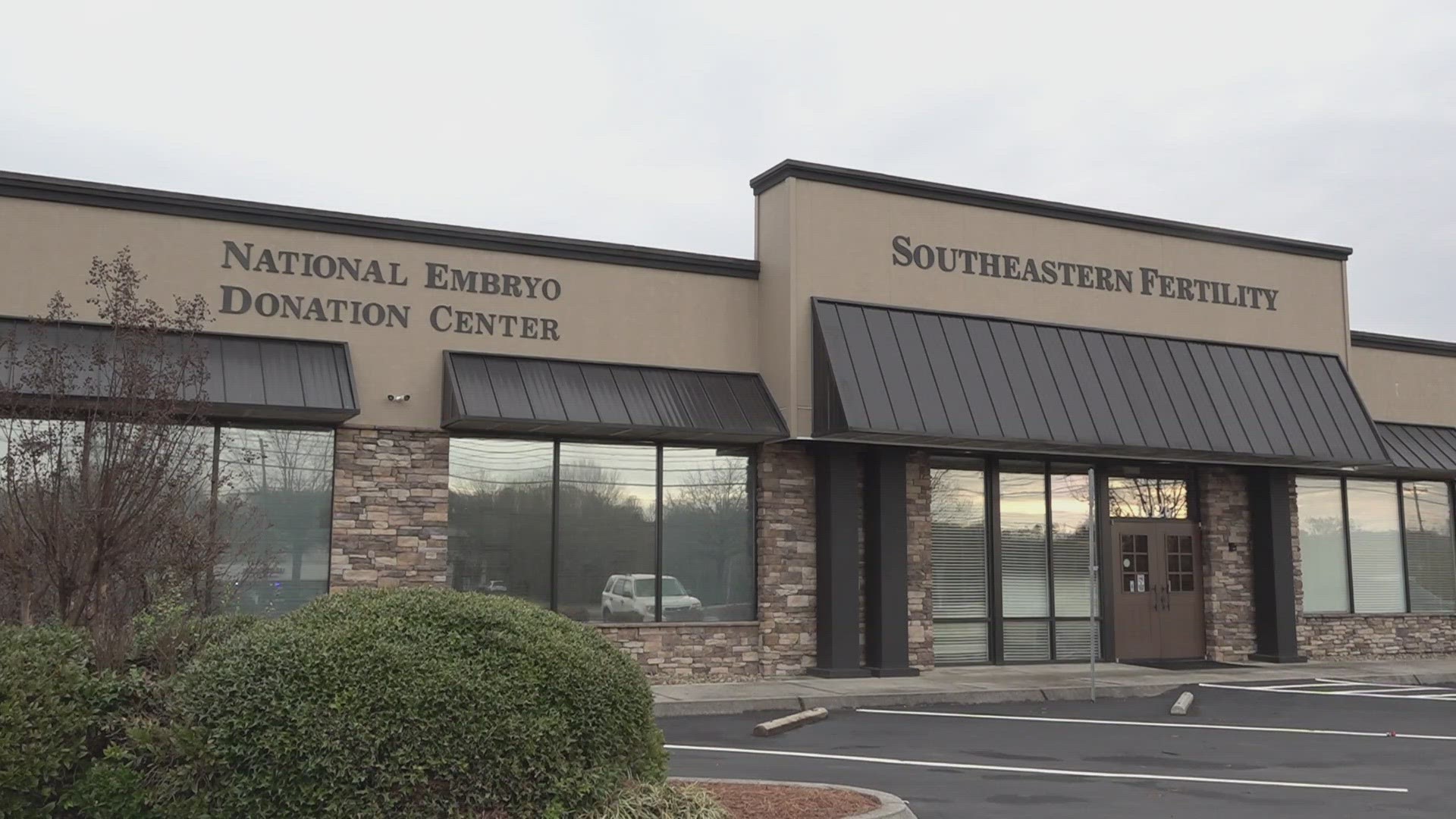KNOXVILLE, Tenn. — On Feb. 16, the Alabama Supreme Court ruled that frozen embryos effectively have the same rights as children under the state's law. The ruling jeopardized access to in vitro fertilization, as clinics and physicians stopped providing the treatment to avoid possible civil or criminal penalties.
During IVF treatments, eggs are fertilized with sperm and then implanted into a uterus. Several eggs may be fertilized as part of the process, while physicians work to find the most viable embryos. Many others may be stored, or discarded.
"Currently, if an embryo shows no evidence that it could ever become a baby, a person, then those embryos are discarded. But the Alabama Supreme Court ruling did not allow for an exception to that it just said that all embryos are children," said Dr. Jeffrey Keenan, Director of the National Embryo Donation Center.
The Alabama Supreme Court's decision was issued in a pair of wrongful death cases from three couples whose frozen embryos were destroyed in an accident at a fertility clinic. The court sided with the couples under the state's 1872 Wrongful Death of a Minor Act.
"My first reaction was that this is going to be a problem for the physicians practicing IVF in Alabama," said Dr. Keenan. "When you define all embryos as children, then could an IVF practitioner or an embryologist be prosecuted with either civil or criminal penalties for loss of life, for a lab accident?"
Several clinics stopped providing IVF services after the ruling in Alabama. Advocates also warned that an increase in liability for negligence, as well as a need for more security measures, could cause the cost of IVF treatment to rise significantly and place it outside the reach of most families.
"The biggest issue is that it makes IVF less efficient. You know, for us to get good pregnancy rates, we need to be able to sort through multiple embryos to find the really viable ones," said Dr. Barry Donesky, a fertility specialist.
For many couples with fertility issues, IVF treatments can be an important part of starting a family.
"IVF is extraordinarily more successful than it was when I started this a little over 30 years ago. So, it's about two and a half times more successful," said Dr. Keenan.
Tennessee lawmakers introduced a bill in the state legislature designed to protect IVF treatments. State lawmakers in Alabama are also working on new protections for the treatment.

